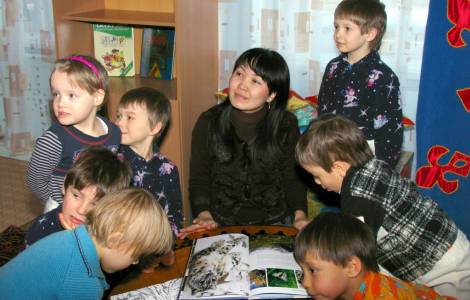
ìAlmaty (Agenzia Fides) - The support project for families with children affected by the Down syndrome continues and is expanding. It was initially launched by Caritas of Almaty in 2016, then extended to the rest of the nation: with the support of Italian specialists, in different cities In Kazakhstan, seminars, lectures and specialist visits are periodically organized to provide basic knowledge to parents and analyze children's progress. As Fides learns, in the past few days the national head of Caritas Kazakhstan, Fr. Guido Trezzani, together with Professor Angelo Luigi Sangalli, coordinator of the project dedicated to children with trisomy 21, held several meetings and interviews with children with Down syndrome and with their families in the Kazakh cities of Aktau and Uralsk.
"Everything went very well: we received about eighty families. There was a nice atmosphere and the parents were delighted", Fr. Trezzani told Agenzia Fides.
The missionary reports that other requests were born from the initiative: "They asked us not only to go ahead with the project, but also to create, with the collaboration of the institutions, training courses for specialists in the sector, therefore for all those who work in kindergartens, schools and places where they are in contact with people with disabilities".
The project could also extend beyond national borders. "We already know that in Karaganda there are about forty families who want us to have these kinds of meetings in their city. We also have requests from Kyrgyzstan and even from Russia. Upon returning to Almaty, we will talk with the institutions and see how it is possible to act", explained Fr. Trezzani.
Caritas of Kazakhstan is also starting a professional training project for adults and for children with disabilities, in collaboration with a group of Italian religious. To respond to this same need, the construction of two greenhouses, one in Talgar and the other in Almaty, had already begun in the past few months: "The first is almost complete, with the second we are a little behind, but I would say we are almost ready to start a job of developing skills in the field of flower cultivation, which could involve adults with Down syndrome", he concluded. (LF) (Agenzia Fides, 7/10/2019)